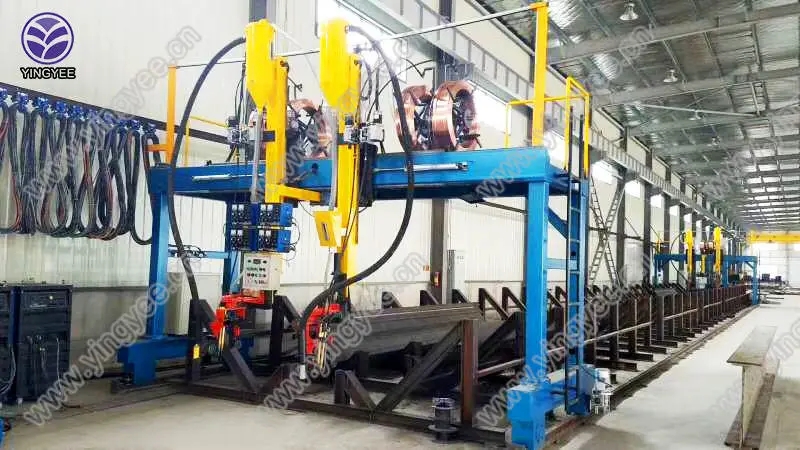
The Automatic Steel Wire Mesh Welding Machine Revolutionizing the Industry
In the modern era of industrial manufacturing, automation plays a pivotal role in enhancing efficiency and productivity. Among various automated machinery, the automatic steel wire mesh welding machine stands out as a game-changer in the construction and manufacturing sectors. This innovative piece of equipment has transformed the way steel wire mesh is produced, bringing numerous benefits to manufacturers and builders alike.
Understanding the Basics
At its core, the automatic steel wire mesh welding machine is designed to streamline the process of welding steel wire rods into mesh panels. Typically used in the construction industry, these mesh panels are essential for reinforcing concrete structures, ensuring stability and durability. The elegance of this machine lies in its ability to perform multiple welding tasks simultaneously, reducing the time and labor involved in traditional manual methods.
Key Features and Advantages
1. High Efficiency One of the most significant advantages of automatic welding machines is their speed. Unlike manual welding processes, which can be time-consuming and labor-intensive, these machines can produce mesh panels at an accelerated rate. This enhancement in productivity allows manufacturers to meet growing market demands without compromising quality.
2. Consistent Quality Automated welding machines use advanced technologies to ensure precision and uniformity in every weld. This consistency is crucial, as the integrity of the welds directly impacts the structural strength of the wire mesh. With automated systems, manufacturers can also minimize human error, leading to higher-quality products and reduced waste.
3. Cost-Effectiveness While the initial investment in an automatic welding machine may be higher than conventional methods, the long-term savings are significant. The reduction in labor costs, combined with decreased material waste, contributes to a more economical production process. Additionally, the ability to produce more mesh panels in less time translates into increased profitability.

4. Versatility The modern steel wire mesh welding machine is designed to cater to various specifications and mesh sizes. Whether it’s for residential buildings or large-scale infrastructure projects, these machines can be adjusted to meet different requirements, making them highly versatile in the industry.
5. Ease of Operation With advancements in technology, many automatic welding machines come equipped with user-friendly interfaces and automated control systems. Operators can easily program the machine to perform specific tasks, monitor production metrics, and make adjustments as needed. This ease of use is essential for training new staff and improving overall workflow efficiency.
Applications in the Construction Industry
The steel wire mesh produced by these automatic welding machines has a myriad of applications in construction. It is widely used for reinforcing concrete in buildings, bridges, roads, and other civil engineering projects. The increased strength provided by the wire mesh is essential for maintaining structural integrity, ensuring safety and longevity.
Moreover, these machines are not limited to just one type of wire; they can handle various diameters and types of steel, making them highly adaptable to different project requirements. This versatility means that manufacturers can cater to a wide range of customers, from small contractors to large construction firms.
Future Prospects
As technology continues to evolve, the automatic steel wire mesh welding machine is likely to see further advancements. Innovations such as enhanced automation, artificial intelligence integration, and improved energy efficiency are expected to define the future of this machinery. In an era where sustainability is becoming increasingly important, equipment that minimizes energy consumption and waste will be in high demand.
In conclusion, the automatic steel wire mesh welding machine is a vital innovation in the construction and manufacturing industries. With its numerous benefits, including high efficiency, consistent quality, and cost-effectiveness, it is set to play a crucial role in shaping the future of construction. As industries continue to embrace automation, the importance of such machinery will only grow, paving the way for more advanced construction techniques and improved structural safety.